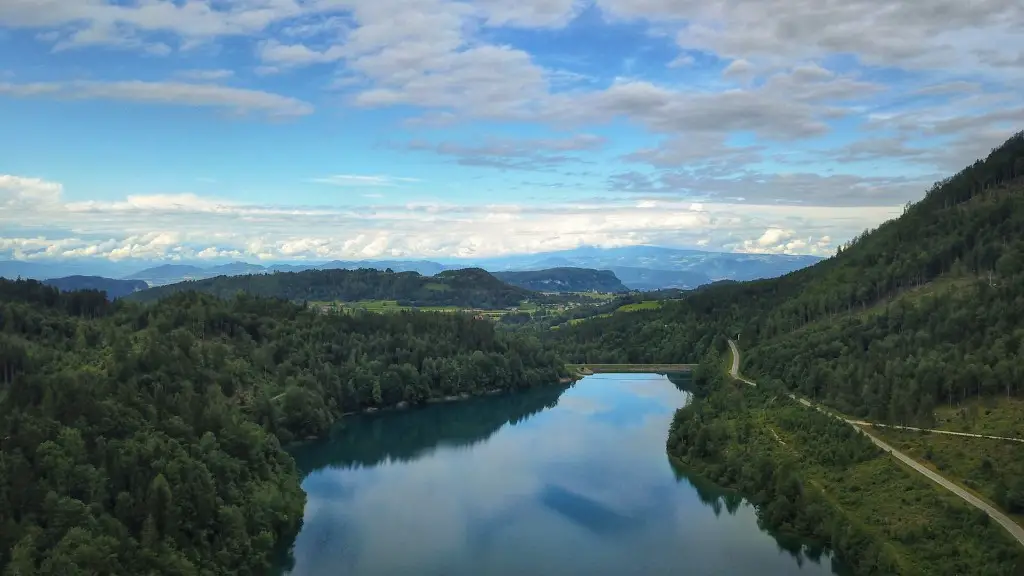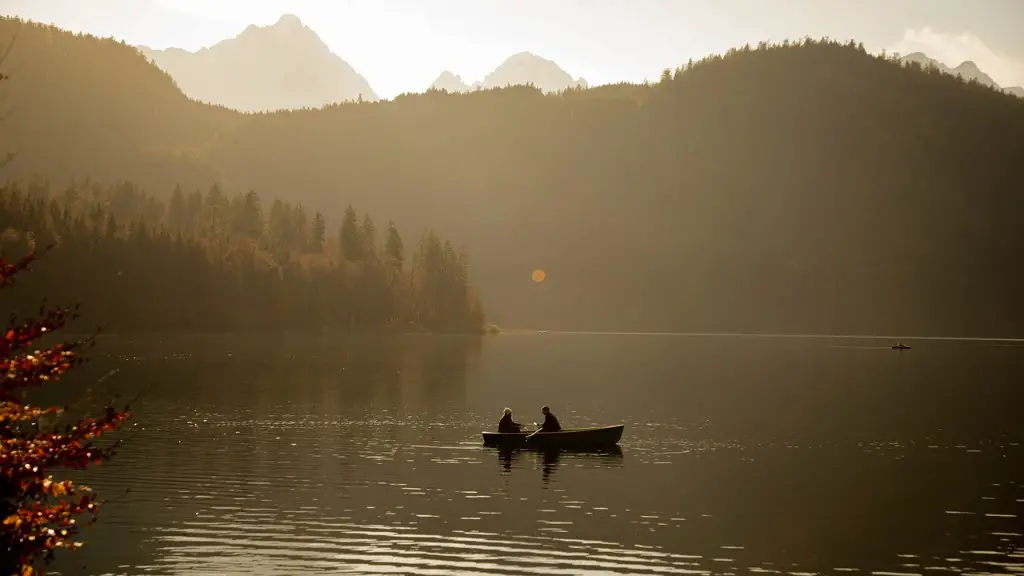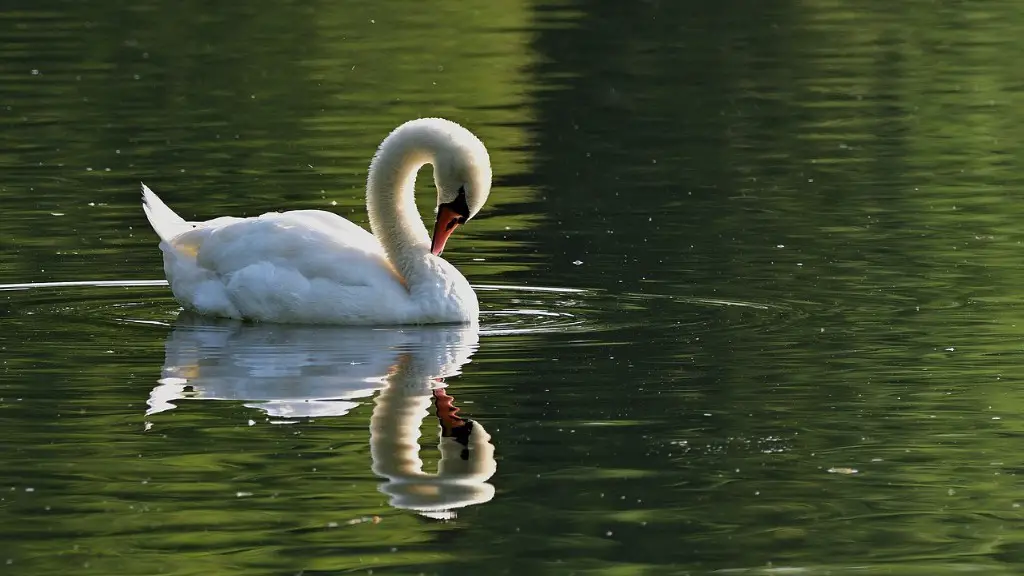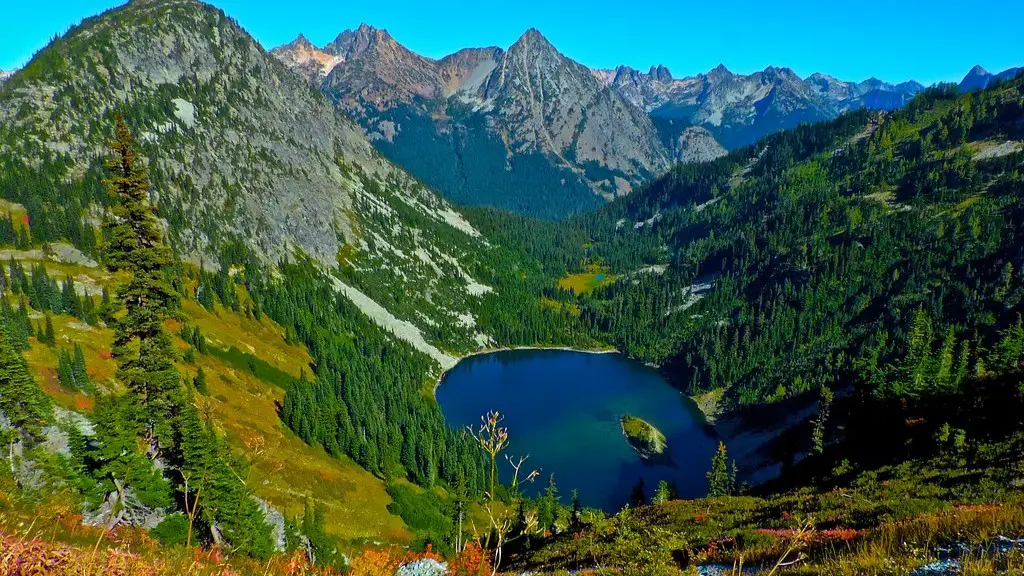Introduction
Lake Victoria is the largest lake in Africa and the source of the River Nile. Discovered in the late 19th century by British geographers, it is the world’s second-largest freshwater lake and one of the most important natural resources in the region. As the lake is the source of the River Nile, it is an important source of food and water for present-day Africa, providing jobs, energy and recreation to the countries around it. It is also a biodiversity hotspot, hosting a number of species of fish, plants and birds. Despite its importance, Lake Victoria faces a number of serious problems such as degradation of its environment and overexploitation of its resources.
Biodiversity
The lake’s biodiversity is exceptional for an inland lake, having been present in the lake for thousands of years, which is why it is a popular recreational fishing destination. The lake is a globally significant hotspot for species of fish, including over 200 species that are threatened or near-threatened. A number of different fish species originate from this lake, such as the endangered Nile perch, or the hardy tilapia, which is popular for use in aquaculture.
Lake Victoria’s bird population is also diverse, with over 300 species having been recorded. The majority of these are waterbirds, such as the common jacana, and lily trotter. The lake also supports the threatened grey crested crane, the localised and rare Shoebill stork, as well as many more. It is also a crucial breeding ground for fish-eating birds.
Impact of Human Activity
Although the lake serves as a valuable resource, it has been subjected to serious human-induced impacts in recent years. The lake has been overexploited for its resources, with fishing activities and pollution from the surrounding areas threatening its biodiversity. Overfishing and unsustainable fishing practices, such as the use of gillnets and overuse of agrochemicals, have drastically reduced the number of fish in the lake. There is also a growing problem of water pollution, largely caused by agricultural runoff, sewage and industrial waste. All of these factors have combined to create a degraded environment for Lake Victoria.
In addition to environmental degradation, the lake has also been impacted by the growing human population in the region. This has led to overdevelopment of cities and villages, as well as rapid urbanisation. As the lake is an important freshwater resource, the pollution and human activity have had a severe impact on the local environment, with serious implications for its biodiversity.
Conservation Efforts
In order to help protect the lake, a number of conservation efforts have been put in place. In response to the growing problem of water pollution, a series of clean-up initiatives have been initiated, such as the Lake Victoria environmental management project. The initiative aims to reduce the levels of pollutants entering the lake from cities and towns, as well as legislating around agricultural practices to ensure they do not contribute to further pollution.
In addition to these initiatives, fishing regulations have been enforced, reducing fishing pressure on the lake. The introduction of limits on the catching of threatened fish species has reduced fishing pressure, whilst stricter regulations on the use of fishing nets has allowed the lake to recover faster. The introduction of protected areas has also been beneficial, allowing the lake to recover without the additional pressure of fishing activities.
Tourism and Recreation
Despite its numerous problems, Lake Victoria is an important source of income for the local economy. Tourism is a major contributor to the lake’s success, as it is a popular destination for recreational activities such as bird watching. It is also a popular fishing destination, with numerous companies offering guided fishing trips.
As well as being a source of revenue, Lake Victoria is also an important source of leisure for the countries around it. In particular, the lake is a popular spot for swimming, sailing and kayaking. With numerous beaches and accommodation options, it is an ideal destination for holidaymakers.
Conclusion
Lake Victoria is an incredibly important source of food, water and leisure to the countries around it. Despite the various problems it faces, the lake remains a valuable resource, providing jobs, energy and recreation to the area. With the introduction of various initiatives and conservation efforts, Lake Victoria is well on its way to becoming a more resilient, sustainable and healthy ecosystem.
Environmental Issues
The most pressing environmental issue facing Lake Victoria is its declining water quality, which is largely due to pollution from agricultural activities and the growing urban populations in the area. Adding to the problem of pollution is the introduction of invasive species, which have been known to disrupt the natural balance of the lake’s ecosystem. The poor water quality has led to a decline in species populations, with a number of threatened species becoming increasingly rare due to the impact of these issues.
In order to address these environmental issues, large-scale initiatives have been put in place to help improve the health of the lake. These include the implementation of legislation to regulate agricultural activity, the introduction of wastewater treatment plants and the banning of certain destructive fishing methods. There is also a growing recognition of the need for environmental education, to help raise awareness of the lake’s importance and the issues it faces.
Economic Issues
The lake is an important source of income for the countries around it, providing jobs, energy and recreation to the region. Despite this, overfishing and pollution are threatening the lake’s resources, with a number of species populations becoming increasingly rare. This has had a severe impact on the local fishing industry, which is reliant on the lake.
In order to address this, a number of initiatives have been introduced to help improve the economic situation of the lake. These include the introduction of regulations around fishing, as well as efforts to promote sustainable fishing methods. There has also been an increase in investment into the tourism industry, with efforts to promote the lake as a destination for recreational activities such as swimming, sailing and kayaking.
Politics
Lake Victoria is an important political issue in the countries around it, with national governments having a vested interest in its health and welfare. This has led to a number of initiatives and agreements between the countries, aimed at improving the sustainability of the lake. One example of this is the Nile Basin Initiative, which is an agreement between the countries in the Nile Basin to share water resources and work together on conservation efforts.
In addition to this, there have been a number of other agreements between countries that have been established to help ensure the health of the lake. These include the Nile River Commission, which seeks to coordinate economic and environmental management activities, and the East African Community, which works to promote economic integration and cooperation in the region.




